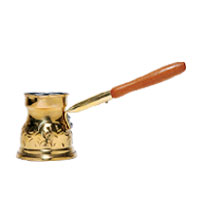όπως μα το μεταφέρει η Helena Smith
Άρθρο απο το περιοδικό New Statesman; 3/13/2006, Vol. 135 Issue 4783, p16.
Brokeback Olympus απο HELENA SMITH
Ι wept when I saw Brokeback Mountain, but I wasn’t alone. When I looked around, nearly everyone crowded into the cinema in Athens was weeping by the time the credits came up. Or looking really rather shocked. The gay cowboys had got the audience good. If every nation has a secret, for the Greeks it is their troubled relationship with homosexuality. This may surprise those who, like the Italians, still think of the act as amore greco. The ancient Greeks, of course, loved sex and thought little of immortalising their homoeroticism in vase paintings, poetry, comedy and sculpture. When it came to Eros, Sappho’s “loosener of limbs”, there was social acceptance in abundance. Modern Greeks, and the Orthodox Church, take a less forgiving view, and there are rules. The first is that gay sex, which is practised widely, not least by “happily” married heterosexuals, should never be flaunted. Men in cars crammed with baby buggies may cruise the parks and their wives may bed one another after lunch, but such things are to be enjoyed, not discussed. The second rule is: you are gay only if you’re out there screaming.
Then and only then will Archbishop Christodoulos, Greece’s fiery spiritual leader, denounce you (as is his wont) as a “pervert” and “sinner”. Denial extends to the nation’s gay artists. These include practically every major painter, poet, composer and singer (chanteuses being particularly prone to lesbianism) produced by Greece in the past century. But mention their sexuality and you draw a blank. Unsurprisingly, queer politics, like sexual labels, arrived in Athens late. Until the 1980s the boundaries between gay and straight sex were blurred. Homosexuality was the exclusive reserve of the overly effeminate, a despised tag slapped on those deviant enough to allow themselves to be buggered. (Greece’s penal code still refers to passive partners in gay relationships pejoratively.) Real men conformed. They were serious about their masculinity. They got married. Then they made their boyfriends best man, and
godfather to their first-born.
“Greeks would rather live in Byzantium than old Athens, which is why this is the most homophobic society in the western world,” says Grigoris Vallianatos, among the few brave enough to be a gay activist. “We’re not conservative; we’re hypocritical. Anything goes, anything is done, but nothing is said.”Small wonder that Brokeback Mountain should cause such a stir. Housewives, students, mothers, intellectuals, clerics, columnists and angry thirtysomethings have all unexpectedly rushed to air their views – both in the media and on cinema websites – as if collectively haunted by the message it conveys. Is this, they ask, the beginning of gay people becoming more visible in Greece? Won’t homosexuality be contagious if even Marlboro men do it? Does this mean we’re about to end our own conspiracy of silence? Gay activists are delighted. The film has done more than make Greeks confront some awkward truths: it has laid the groundwork for a debate around gay marriage, an issue that has yet to be taken seriously in the land that invented homosexuality.
Εγγραφή σε:
Σχόλια ανάρτησης (Atom)

2 σχόλια:
Sorry που παρεμβαίνω με κάτι άσχετο, αλλά νομίζω ότι είναι σημαντικό να το δουν όσο το δυνατόν περισσότεροι. Εδώ μπορείτε να δείτε τις φωτογραφίες δύο νεαρών αγοριών που μαστιγώθηκαν 80 φορές στο Ιράν με την κατηγορία ότι είχαν ερωτικές περιπτύξεις. Σήμερα είναι πρόσφυγες στην Τουρκία.
http://www.irqo.net/IRQO/English/pages/059.htm
Στην Τουρκία για καλύτερα πήγαν; Καλά πλάκα μας κάνουν; :)
Δημοσίευση σχολίου